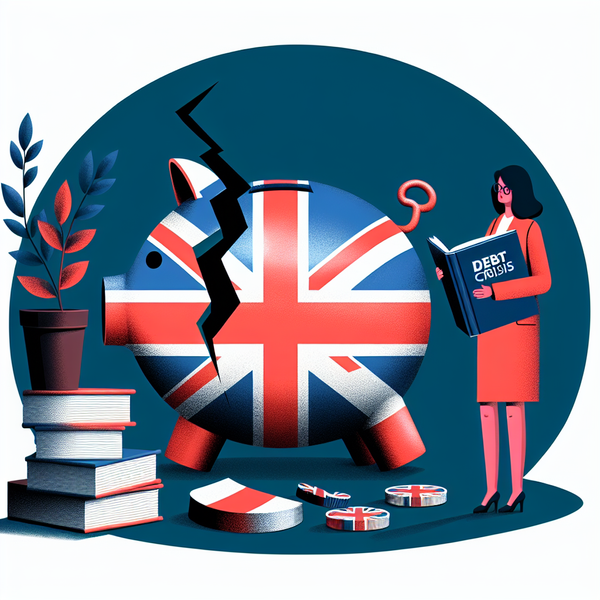UK Government Borrowing Lower Than Expected Amidst Economic Challenges

Introduction
The UK government's borrowing significantly reduced in November, surprising economists and analysts who anticipated a higher figure. This marks a notable shift in fiscal dynamics amidst a backdrop of economic challenges, inflationary pressures, and public spending considerations.
Government Borrowing Trends
In November, the government borrowed £11.2 billion, the lowest November figure since 2021. This is £3.4 billion less than last year's same month and lower than the predicted £13 billion. The reduced borrowing has been attributed to an increase in tax revenues and decreased debt interest payments.
The Office for National Statistics (ONS) highlighted a reduction of £4.7 billion in debt interest payments, down to £3 billion, primarily due to lower inflation rates. This development gives the government a temporary financial advantage, and eases fiscal pressures ahead of the new financial year.
Retail Sector Performance
Alongside fiscal improvements, retail sales showed a modest recovery, increasing by 0.2% in November following a decline of 0.7% in October. The ONS report suggests stronger trading at supermarkets, though these gains were partially offset by a decrease in clothing sales. The survey period excluded the official Black Friday shopping date, which could have impacted overall sales performance.
Economic Growth and Inflation Concerns
Despite the fiscal respite, the UK economy faces challenges, with inflation rising at its steadiest pace since March. The Bank of England, recognizing the fragile economic landscape, opted to maintain current interest rates as economic growth stagnated from October to December. This decision came after revising its growth forecast from 0.3% to zero for the final quarter of the year.
Potential Policy Adjustments
Economists like Ruth Gregory and Dennis Tatarkov have suggested that, despite recent fiscal improvements, the government may consider implementing further tax increases or spending cuts. The perception remains that ongoing inflation may negate benefits gained from lower interest repayments, leading to more stringent economic measures.
Outlook
The revised growth outlook contradicts Labour Party objectives, focused on revitalizing the country's economic growth. Political discourse suggests the government aims to recalibrate public finances and bolster economic resilience, but challenges persist amid uncertain economic performance indicators.
Conclusion
November's borrowing data offers the government a breather, but underlying fiscal and economic concerns continue to pose significant challenges. As the year progresses, the UK government will need to navigate these hurdles strategically to ensure sustainable economic management and stability.




